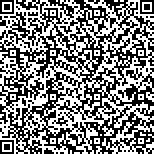下载中心
优秀审稿专家
优秀论文
相关链接
摘要

冬小麦是中国最主要的粮食作物之一,利用遥感技术提取冬小麦种植区是遥感应用研究的一个重要方向.2008年以来发射的系列风云三号(FY-3)卫星均携带着中分辨率光谱成像仪(MERSI),该传感器有5个250 m分辨率的波段,波段范围包括可见光、近红外和热红外,观测数据包含丰富的地表信息,为大范围冬小麦种植区提取提供了新的数据源.首先,选取生长季前期多幅高质量的MERSI数据,采用分层提取的方法,对于不同的层次选用与待提取类别最为敏感的特征波段来构建相应的决策树,从而将每一幅影像中冬小麦种植区提取出来,然后,将多幅数据融合为一幅生长季内的冬小麦种植区图.最后,使用野外实地调查的数据进行精度验证,面积提取精度为90.8%.结果表明,在春季返青后,即可做出当季冬小麦种植分布图,为农情监测提供及时的信息支撑.
Winter wheat is one of the main crops in China. Mapping the winter wheat growing areas with remote sensing technology is one of key areas of remote sensing application. The FY-3 series polar orbiting satellites launched since 2008 were equipped a Medium Resolution Imaging Spectrometer(MERSI) which has five 250 m resolution channels, ranging from visible, near infrared to thermal band. The data may capture abundant land surface information and is a new data source for mapping winter wheat growing areas. We selected eight date MERSI data with high quality in the early stage of the winter wheat growing season. We adopted the hierarchical classification method to extract winter wheat area. For each class, we chose the most sensitive band or band composites to build the decision tree which is helpful to separate the classes on an image. After winter wheat area was extracted from all images, a data fusion process was followed. Finally, the winter wheat planting area map was made available. In comparison with the ground truth data, the winter wheat planting area map obtained a relative accuracy of 90.8%. The results showed that in early stage of the spring, mapping the winter wheat planting area with FY-3 MERSI data is feasible and it is also able to provide timely winter wheat planting area information for the agricultural management.

